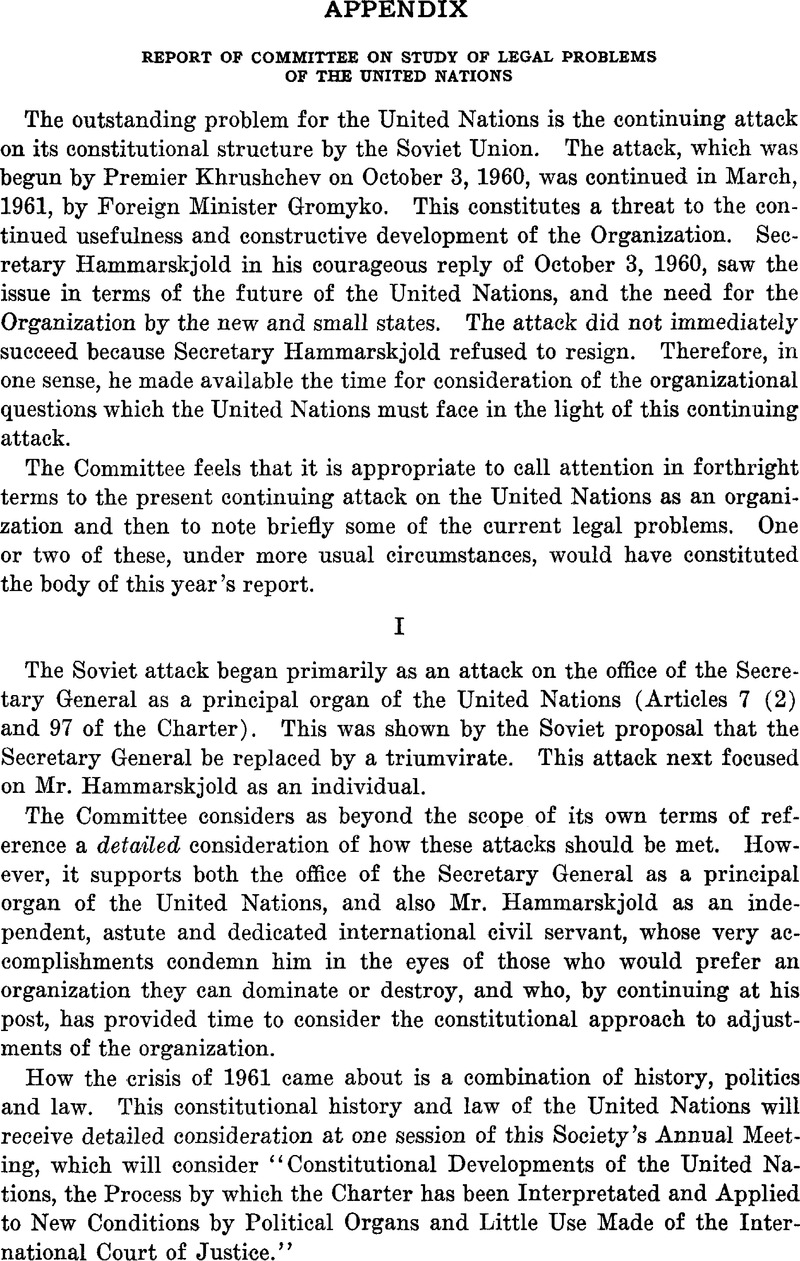No CrossRef data available.
Published online by Cambridge University Press: 27 February 2017

1 Louis B. Wehle, ‘ ‘ The IT. N. By-Passes the International Court as the Council's Advisor, A Study in Contrived Frustration,” 98 University of Pennsylvania Law Eeview 285-319 (1950).
2 U. S. Participation in the United Nations, Eeport by the President to the Congress for the Year 1952, p. 211 (Department of State Pub. 5034, August, 1953).
3 Keport of Committee on Study of Legal Problems of the United Nations, 1960 Proceedings, American Society of International Law 262-267.
4 Compared with the demand of the practitioner that international law have the certainty and enforceability of national law, with the demand of the political realist that it show the capacity to solve the power struggle, with the demand of the scientist that it abolish the nuclear bomb, it is indeed a modest plea to suggest that international law be applied within a selective community. It has been suggested that such selective communities may be identified with regional or functional organizations or more broadly with groups of states which share generally a philosophy of respect for law. So limited, international law is today playing a useful role but its potentialities have not been realized. In subsequent chapters we shall test these two conclusions.” Philip C. JesBup, The Use of International Law, Ch. I, ‘ ‘ The International Community Subject to the Law,” pp. 28-29; also Ch. V, “Problems and Prospects,” p. 152; Cooley Lectures, University of Michigan Law School, 1960.